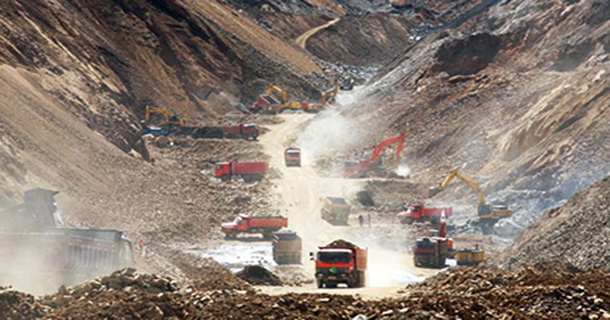Another Threat to the Environment in Tibet
The region of Gyama Valley, located in the Tibetan Autonomous Region of Maldro Gongkar, is facing the prospect of yet another Chinese owned and operated copper mine in the area. Chinese workers have constructed a purpose-built road into the valley, and local reports state that mining operation could commence as early as this month. For the community of Gyama Valley, like many others in Maldro Gongkar, agricultural pursuits such as farming and herding are the norm. The continued destruction of grazing areas and local rivers will threaten the long-term continuation of these traditional livelihoods.
Mining operations in Tibet tend to a lack of management and planning standards considered acceptable in other countries, leading to substandard operating safeguards and waste management procedures. A deadly landslide in the Gyama Valley region in 2013 has been attributed to the water diversion and construction required for these heavily engineered mining projects. There are reports of Tibetan communities forcibly removed from prospective mine sites with no prior consultation. Once mines commence production, the surrounding waterways become polluted with contaminated mine-runoff, and mining operations exacerbate soil erosion and degradation.
Copper and gold deposits in Tibet are valued at approximately one trillion US dollars. However, unlike other resource-rich nations that must choose between environmental preservation or the economic benefits of mining industry, the people of Tibet face a lose-lose situation. Mining pursuits in Tibet are exclusively Chinese owned and operated. As such, the vast majority of employment and economic benefits arising from mining are channelled away from local Tibetans and into Chinese hands. Chinese repression of Tibetan free speech is so severe that any protests against Chinese mining projects in the area are likely to be swiftly shut down, with environmental activists facing physical abuse and criminal punishment. In effect, local Tibetans will likely continue to watch the integrity of their environment and their livelihoods disappear as Chinese mining projects continue to spring up around Maldro Gongkar and across Tibet.
Source:contactmagazine.net



comment 0